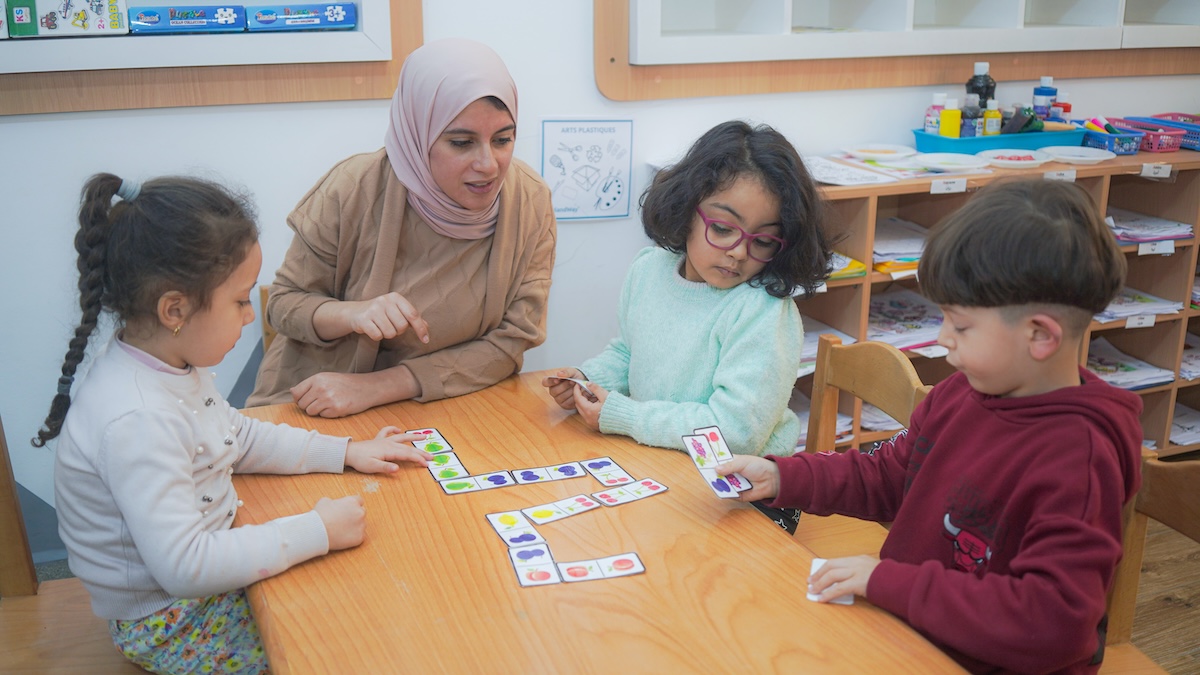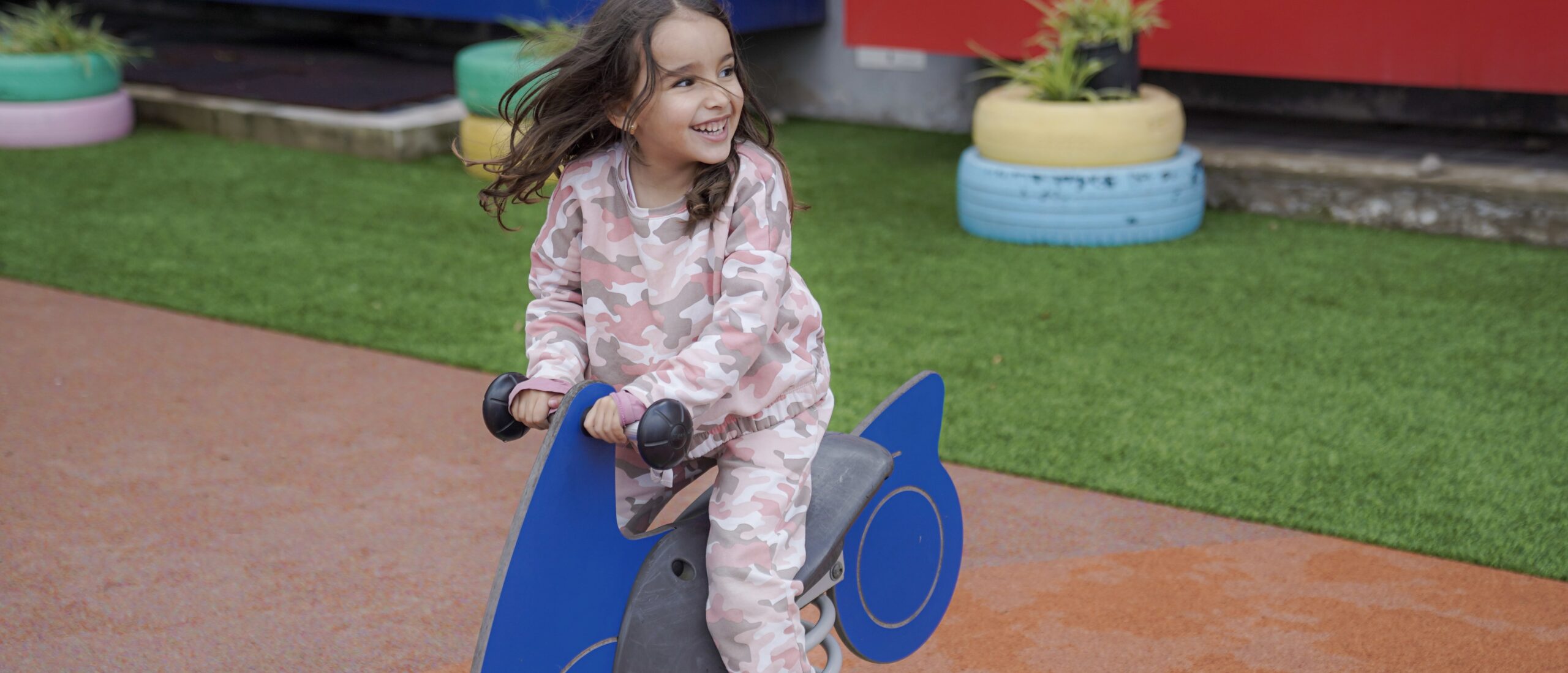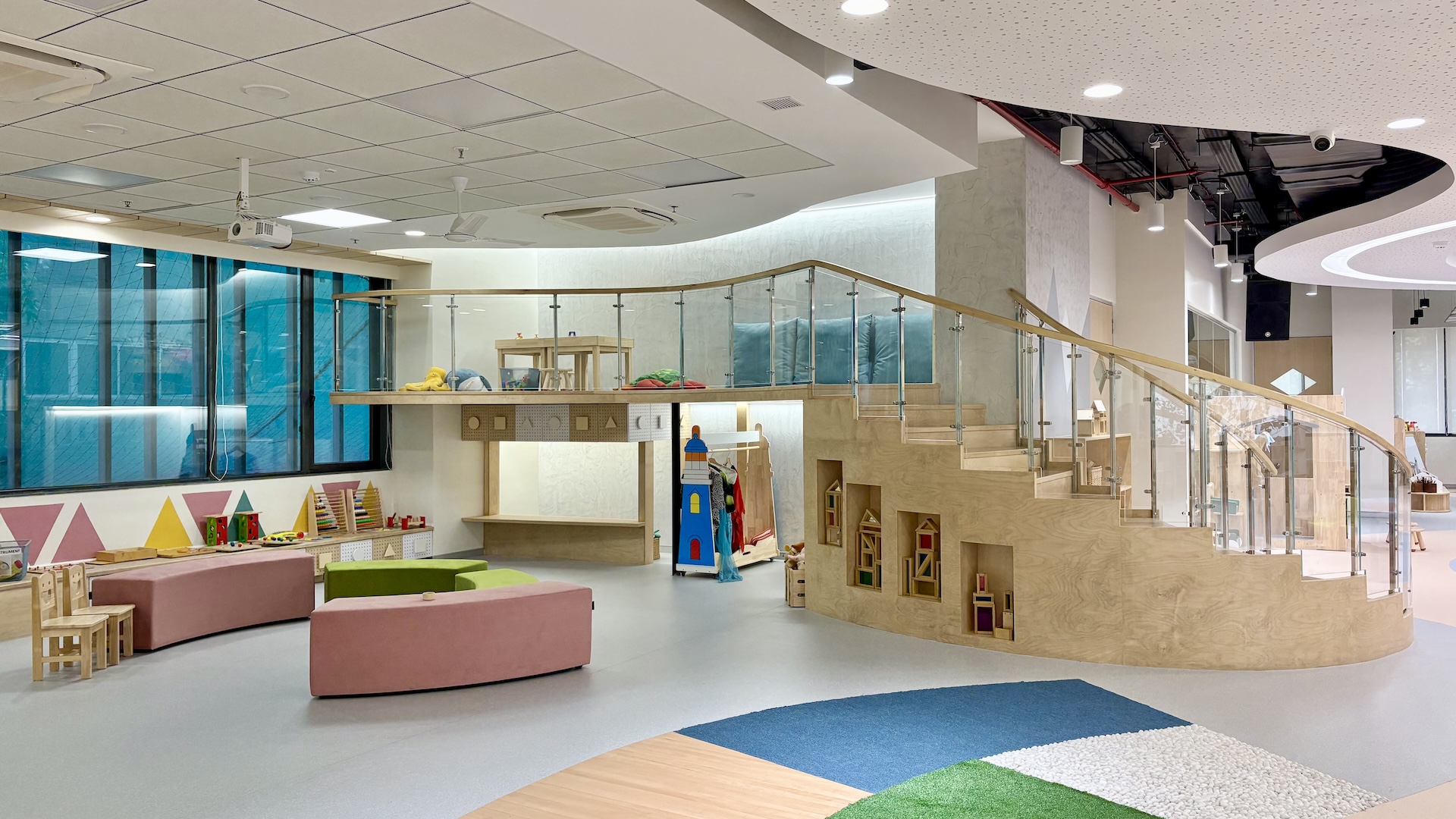As the world continues to change at a rapid pace, the skills needed to thrive are evolving too. In the 21st century, simply memorising facts is no longer enough. Children need a broad set of capabilities often referred to as future skills. These include for example, creativity, critical thinking, collaboration, digital literacy and emotional understanding. Preschool education plays a vital role in helping children begin to develop these skills from the very start of their learning journey. This article explores how early years settings lay the foundation for future learning and why these skills matter more than ever.

What are future skills in the 21st century?
Defining future skills for young learners
Future skills refer to the set of abilities that help children make sense of the world and adapt as it changes. These are not just academic skills, but ways of thinking, communicating and interacting that shape how young learners approach new experiences. In the early years, future skills begin to form through everyday moments for example when a child solves a puzzle, tells a story, or plays cooperatively with a friend. Critical thinking is encouraged when children ask questions or try out different solutions. Creativity shows in how they use art, movement or imaginative play to express themselves. Collaboration and communication develop naturally through shared activities, where children learn to listen, take turns and work together. Digital literacy, when introduced gently and with guidance, helps children begin to understand how to use technology safely and purposefully. Underpinning all of this is emotional intelligence; the ability to recognise one’s feelings, show empathy and build positive relationships. These abilities support both learning and wellbeing, and are increasingly seen as just as important as traditional academic knowledge. Also according to a World Economic Forum report, these skills will be among the most valuable in the future job market.
Why they matter now more than ever
Today’s children are growing up in a world shaped by automation, artificial intelligence and global connections. Traditional approaches to education do not fully prepare them for these realities. Future skills help children become adaptable thinkers, confident problem-solvers and responsible digital participants. Starting early ensures these qualities grow naturally as part of a child’s development.
How preschool education builds future skills
Learning through play and exploration
Play is a natural activity for children through which they explore the world, test their skills and knowledge, and express themselves: it is a central way of learning in the early years. Through play, children begin to develop many of the essential skills they will use throughout life and education. They learn how to solve problems, express ideas, and interact with others in meaningful ways.
As they play, children are building important cognitive and emotional foundations. They start to develop symbolic thinking, begin to understand the difference between real and imaginary, and practise taking the perspective of others. These early experiences support self-regulation, build resilience, and nurture flexible thinking. In other words, play helps children manage their emotions, persist through challenges, and think creatively.
In well-designed early years settings, children are given the freedom to take the lead in their play, while teachers create opportunities to explore key learning topics in playful, hands-on ways. Whether role-playing in a pretend shop, building a structure with blocks, or inventing a new game with peers, children are active participants in their learning.

Early technology use and digital literacy
Preschools are increasingly introducing digital tools in thoughtful, age-appropriate ways. Tools like Bee-Bots, interactive boards and tablets support logical thinking and creativity. The focus is not on screen time, but on how technology is used with guidance and balance.
It’s important, however, that screen time is guided by educators and balanced with physical play.
Teamwork and peer interaction
Learning to work with others is a vital part of early development. In preschool, this happens naturally through group activities where children build, create and solve problems together. Whether it’s constructing something with blocks, working on a shared puzzle, or painting as a team, these moments help children practise key collaborative behaviours such as listening, turn-taking, sharing ideas and resolving disagreements.
In Finland, early education places strong emphasis on learning as a shared process. Classrooms are designed to encourage peer interaction, and children are supported in helping one another. Through these experiences, children begin to understand the value of cooperation and feel a sense of belonging in a learning community. This strengthens social skills and also supports emotional development, and builds confidence in expressing thoughts in a group setting.

Real-world case studies: preschools that lead the way
Finland – integrating future skills in the national curriculum
In Finland, preschools focus on holistic development. Children spend time outdoors, use technology in meaningful ways and take part in group projects. The national curriculum supports independence, collaboration and creativity rather than rote learning.
More on this approach at Education Finland
UAE – smart learning in early years
In the UAE, early years classrooms are using digital tools such as interactive displays and child-friendly voice assistants. Projects with partners like Microsoft and IBM are helping to introduce coding and design thinking from a young age.
India – low-cost models driving big impact
Organisations such as Pratham and Teach For India are finding low-cost ways to bring future-ready tools into rural preschools. One example is a storytelling app that helps children develop language skills while learning to use digital devices.
Practical tips for educators and parents
At home
- Build a Lego city with a specific goal. This helps planning and problem-solving.
- Use drawing apps to make digital art.
- Read stories together and ask questions that encourage thinking.
- When watching TV shows or movies, ask questions about what the children have seen.
- Solve puzzles together.
- Use simple coding apps like Scratch Jr. together.
In the classroom
- Plan more group activities than individual drills.
- Use storytelling, music and art across all areas of learning.
- Create visual routines to help with making choices.
- Offer safe digital tools for guided use.
Data insights: how future skills impact long-term success
| Skills Developed | Academic Outcomes | Social Outcomes |
| Collaboration | +20% in group project scores | Fewer behavioural issues |
| Critical Thinking | +18% in problem-solving | Better decision-making |
| Digital Literacy | Higher engagement levels | Improved self-regulation |
Source: OECD 2023 Early Learning Impact Report
Addressing challenges and concerns
Are we overloading children too soon?
Some worry that introducing concepts like coding too early may add pressure. However, when learning is rooted in play and exploration, children engage naturally. The focus should remain on curiosity and enjoyment, not outcomes.
How can we ensure all children benefit?
Access and equity remain key challenges. To reach all children, we must:
- Invest in training educators on digital and inclusive practices
- Ensure learning tools are available in all areas
- Work in partnership with families to extend learning at home
For support, see UNICEF’s Early Childhood Development resources
Frequently asked questions (FAQ)
What are the most important future skills for preschoolers?
Creativity, collaboration, critical thinking, communication, and digital literacy.
Can future skills be taught without technology?
Yes. Many of the most important skills, like problem-solving and empathy, can be built through play, stories and real-life experiences.
How early should we start?
Preschool (ages 3 to 5) is an ideal stage, as young children are highly open to new ways of thinking and learning.
Final thoughts: shaping the future begins early
Children today will grow up in a very different world from the one we know. Helping them develop future skills in preschool is a long-term investment in their confidence, well-being and ability to navigate change. By supporting children with curiosity, creativity and care, we can help them grow into thoughtful, adaptable and kind adults.




